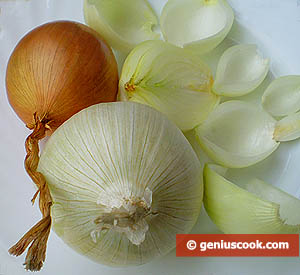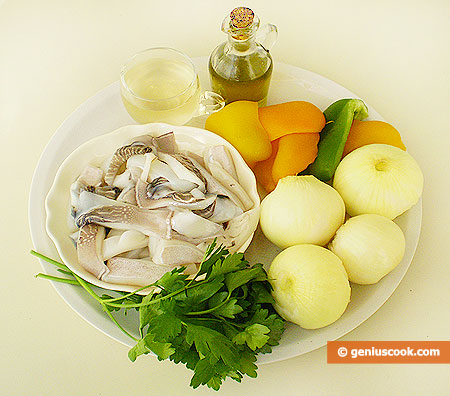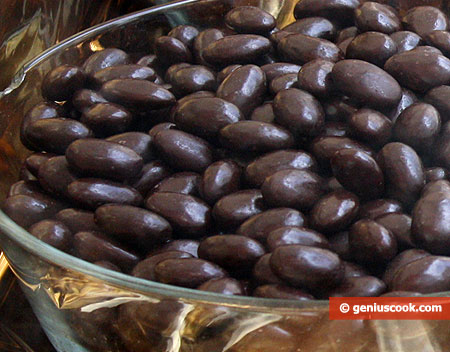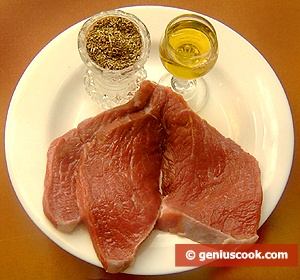Onion
 Onion (Allium cepa) is a plant belonging to family Alliaceae, as well as garlic. The bulbs of onion are covered with the skin of different colors: violet, reddish and white. Red onion is spicier, white onion is milder, sweeter and juicier. Onion is one of the oldest vegetables known to mankind. In Persia and Central Asia onion was known about five thousand years ago. This is a perennial plant, which grows to a little bulb from seeds during the first year, and the second year there form large, juicy and pulpy onions.
Onion (Allium cepa) is a plant belonging to family Alliaceae, as well as garlic. The bulbs of onion are covered with the skin of different colors: violet, reddish and white. Red onion is spicier, white onion is milder, sweeter and juicier. Onion is one of the oldest vegetables known to mankind. In Persia and Central Asia onion was known about five thousand years ago. This is a perennial plant, which grows to a little bulb from seeds during the first year, and the second year there form large, juicy and pulpy onions.
Onion is eaten fresh, marinated, boiled and fried. Due to its high nutritional value it is indispensable in cooking and flavoring of different dishes. Onion is used in lots of recipes: fresh onions – in salads, fried onions are a perfect garnish to meat or fish. The tastiest variant of onions is to fry little onion bulbs. Onion is always used in various sauces and soups.
Fried eggs are especially tasty with onions, they become sweetish and flavored. The crowning glory of all Italians is “Venetian liver” (“Fregato alla veneziana”), which is prepared with a lot of onion; due to it the liver becomes extremely tender. Beans can also be prepared with onion, black olives and capers. Onion is very tasty and is an important ingredient in health maintenance.
Medical Properties and Health Benefits of Onion
- Onions secrets a lot of phytoncids killing pathogenic microbes, this is why it is widely used as remedy for catarrhal diseases: flu, angina, suppurative lung inflammation, catarrh and cough.
- Onion is used for the treatment of bronchial asthma.
- Onion prevents from prostatic hypertrophy. Even in ancient Egypt onion decoction was considered an aphrodisiac.
- Onion prevents atherosclerotic plaques.
- Onions reduce blood coagulation, prevents atherosclerosis and other cardiovascular diseases. One onion bulb can have the same effect as cardio aspirin.
- This vegetable improves kidney function and absorbs nitrogen from blood.
- Onion also has an anticarcinogenic effect.
- It stimulates digestion and regulated bowels function removing putrefactive microorganisms.
As wee see, onion is very beneficial to your health. Medical properties of onion exceed those in many drugs, which normally have side effects.
Substances Contained in Onion
Here is the list of substances contained in onion:
- magnesium, calcium,
- sodium, chlor,
- sulphur, phosphorus, iron,
- essential oils,
- ascorbic acid,
- vitamins PP, B, A.
There was a cardiologist in the USA, who once read an ancient Egyptian papyrus about health properties of onion. He decided to test these properties with his patients suffering from cardiovascular diseases (of course, with their consent). These patients had low levels of good cholesterol (HDL). On the doctor’s advice they ate one little onion a day. And after two months had passed, all patients had better cholesterol levels. The properties of “good” cholesterol are to absorb bad cholesterol (LDL) from blood and bring it to the liver, which destroys it. Thus, the information from the ancient papyrus can be confirmed even today. In order to achieve more medical effect, it’s recommended to eat fresh onion. And to get rid of onion breath odor, just chew a twig of parsley or a piece of lemon with skin.







